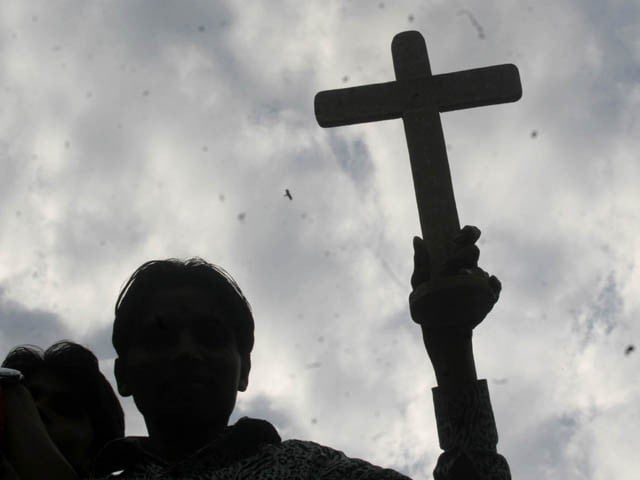Sargodha police have recently arrested a Christian man on blasphemy charges for allegedly sharing a post on a social media website, as reported by his family. This incident has raised serious concerns among minority rights activists, who urgently call on authorities to address the misuse of blasphemy laws often wielded as tools of hate and personal vendettas. They are also advocating for the protection of the rights of marginalized religious communities.
Zaki Masih, a 35-year-old Christian man, was apprehended by the police on July 8 after a case was filed against him under Sections 295-A and 298 of the blasphemy laws. The charges were brought forward by Muhammad Awais, a local resident, who alleged that Zaki had shared a blasphemous post on Facebook.
Section 295-A specifically addresses “deliberate and malicious acts intended to outrage religious feelings of any class by insulting its religion or religious beliefs” and carries a punishment of up to 10 years imprisonment, a fine, or both. Section 298 prescribes a penalty of up to one year in prison, a fine, or both, for hurting religious sentiments.
Despite receiving support from the Imam of the village mosque and other Muslims from the neighborhood, who confirmed that Zaki’s post did not disrespect any religion, he was taken into custody, as stated by his family.
Zaki’s brother explained that the post shared by Zaki was written by a Muslim individual criticizing those involved in food adulteration. The family firmly believes that the case against Zaki results from a long-standing land dispute with individuals who continue to harbor grudges, despite attempts at reconciliation through village elders.
Minority rights activists have expressed deep concern over the increasing number of blasphemy cases targeting religious minorities and are urgently calling on authorities to address the rampant misuse of blasphemy laws. Joseph Jansen, a prominent minority rights activist, vehemently condemned the filing of a blasphemy case against yet another Christian man. He emphasized the urgent need to amend blasphemy laws to ensure the protection of marginalized individuals’ lives.
Jansen also urged people to exercise vigilance when using social media platforms and take appropriate measures to protect themselves from potential ordeals resulting from false accusations.
Tahir Naveed Chaudhry, a former member of the Punjab assembly and a resident of Sargodha, pointed out that this incident is the second occurrence in Sargodha, where innocent Christians have been falsely accused of blasphemy. Chaudhry emphasized that such situations create tension within villages, as accusations of blasphemy not only target the accused but also pose threats to their families and the entire community. He expressed regret over the failure of police officers to follow due procedure by seeking permission from the state in blasphemy complaints.
Ashik Naz, a prominent human rights activist, highlighted the unfortunate reality that three to four hundred people, including young children, have been forced to flee their homes due to false blasphemy accusations. Naz strongly emphasized that the state’s failure to hold accountable those who incite or engage in violence against others based on allegations of blasphemy is deeply concerning, and he urged for justice to be served.
Naz also expressed deep disappointment over the recent agreement between government officials and the Tehreek-e-Labbaik Pakistan (TLP), a political party, to incorporate the Anti-Terrorist Act into blasphemy charges against individuals accused of disrespecting Prophet Muhammad. He vehemently opposed such measures, as they undermine justice and contribute to an environment of intolerance and violence.
Additionally, Naz highlighted the failure of Pakistan to effectively implement UN conventions and fulfill obligations under the GSP+ status, particularly regarding violence against religious minorities under blasphemy laws, forced faith conversion, and forced marriage of girls and women.
The arrest of Zaki Masih sheds light on the ongoing challenges faced by religious minorities in Pakistan and underscores the pressing need for reforms to prevent the misuse of blasphemy laws. It is of utmost importance to uphold the principles of justice, protect the rights of all individuals, and ensure that the freedom of expression is respected and safeguarded.


